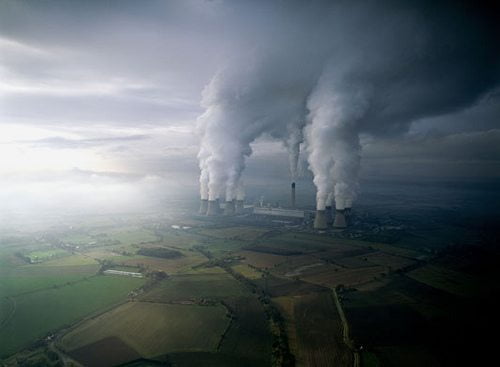

Energy
EU agrees on 40% emission cut climate target
EU leaders have agreed on a climate change pact that requires the bloc to cut its greenhouse gas emissions by at least 40% by 2030.
Blue & Green Tomorrow is currently running a crowdfunder to ensure its survival. Please pledge.
The climate package, finalised at a meeting of heads of state and government in Brussels, also sets two 27% targets for renewable energy’s market share and for energy efficiency improvements across the EU.
With world leaders set to meet in Paris next year in an effort to engineer a similar global deal, EU delegates said the agreement was an important breakthrough.
“This package is very good news for our fight against climate change. No player in the world is as ambitious as the EU,” said European Commission president Jose Manuel Barroso.
The EU’s climate commissioner Connie Hedegaard added, “We have sent a strong signal to other big economies and all other countries. We have done our homework, now we urge you to follow Europe’s example.”
However, analysts, investors, campaigners and industry experts have already expressed concern that the 2030 targets are too weak, with some arguing they represent a missed opportunity.
In order to prevent the most devastating impacts of climate change, scientists warn that global emissions must be cut by 80% by 2050. This has led some to question whether today’s pact leaves future EU leaders with an almost impossible task.
“To describe 40% emissions cuts as adequate or ambitious, as EU leaders are doing, is dangerously irresponsible. 40% is off the radar of climate science,” said Brook Riley, climate justice and energy campaigner for environmental charity Friends of the Earth Europe.
Richard Black, director of the Energy and Climate Intelligence Unit, added, “The next generation of European leaders may look back and conclude that this generation has given them a hospital pass.”
Meanwhile, the 27% renewable energy target is binding only for Europe as a whole, as leaders rejected calls for individual national targets for the 28 EU member states.
The energy efficiency target is only an “indicative” target, meaning it is not binding at all. This is despite improved efficiency being hailed as one of the most promising solutions to climate change.
“It is […] disappointing that the package contains insufficient ambition on energy efficiency, one of the cheapest ways of cutting greenhouse gas emissions, protecting consumers against rising energy bills and improving energy security,” said Nick Molho, executive director of the sustainability lobby Aldersgate Group.
“We urge the next [Westminster] government to make energy efficiency a national infrastructure priority in the UK to ensure its environmental, economic and energy security benefits can be maximised.”
Ahead of this morning’s announcement many alternative, stronger visions had been set forward for the climate deal.
The Renewable Energy Association, the UK’s largest renewables trade body, had called for a trio of targets for greenhouse gas emissions savings, energy efficiency and renewable energy, each of at least 40%.
Friends of the Earth had called for a 60% emissions cut, while Greenpeace had recommended a 45% renewables target.
Such ambitious targets, supporters argued, could have secured the continent’s clean energy future and set renewables on the path to becoming subsidy-free by 2030.
Instead, it is feared the 27% targets are unlikely to provide enough certainty to finance the required clean energy revolution.
“The major problem is that there is no national accountability, only an EU wide one, on renewables and energy efficiency so the stage is set for even more tortuous talks and arguments between EU states, not all of whom will be willing to pull their weight,” said Martin Schoenberg, head of policy at Climate Change Capital, the environmental asset manager and advisor.
Stephanie Pfeifer, chief executive of the Institutional Investors Group on Climate Change, added, “Given the potential for energy savings to reduce costs and boost energy security, the non-binding 27% energy efficiency target is disappointing and sends a weak signal. We would urge the commission to revise this target well in advance of 2020.”
Renewables currently provide around 14% of the EU’s energy, but figures show clean energy investment stalled across the continent this year, falling to an eight-year low.
Photo: thewritingzone via Flickr
Further reading:
Stronger EU renewable energy targets could rid need for subsidies
Business lobby urges European leaders to set ambitious climate change targets
Europe 2030 emission targets need to go further, says IPCC vice-chair
New lignite coal plants threaten EU climate change targets
Ambitious energy efficiency targets are key to combating climate change


 Features11 months ago
Features11 months agoEco-Friendly Cryptocurrencies: Sustainable Investment Choices

 Energy11 months ago
Energy11 months agoThe Growing Role of Solar Panels in Ireland’s Energy Future

 Energy10 months ago
Energy10 months agoGrowth of Solar Power in Dublin: A Sustainable Revolution

 Energy10 months ago
Energy10 months agoRenewable Energy Adoption Can Combat Climate Change

























